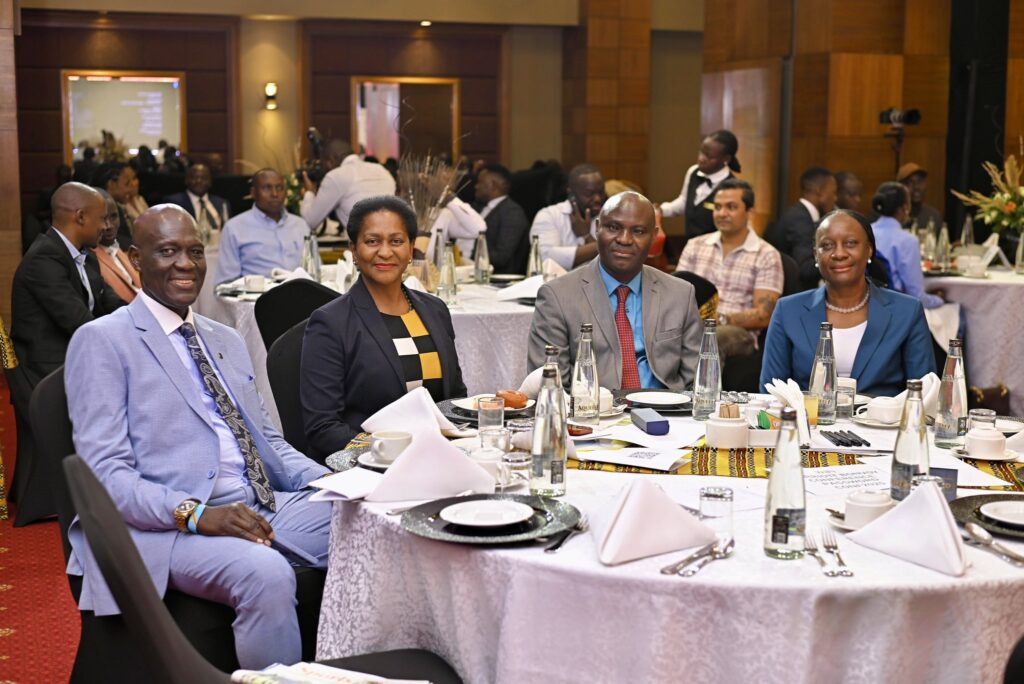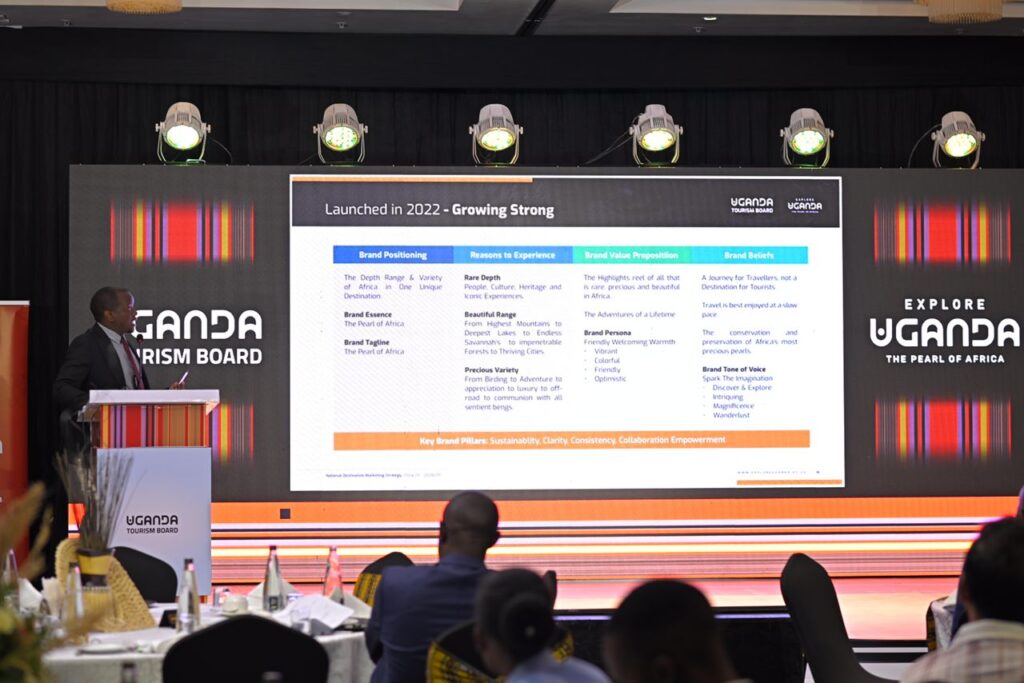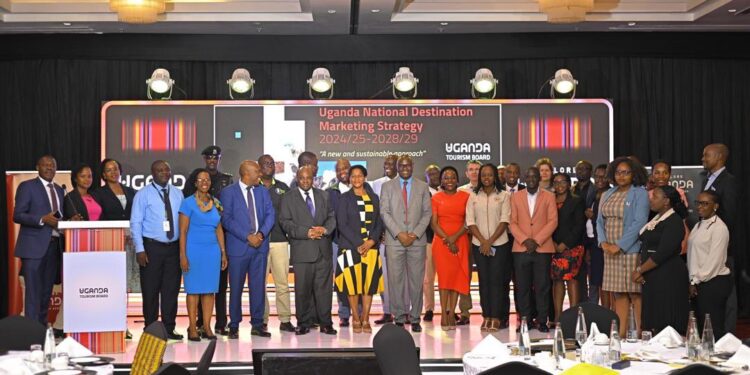The Uganda Tourism Board (UTB) has unveiled the Uganda National Destination Marketing Strategy (NDMS) 2024/25 – 2028/29, a comprehensive plan boosting the country’s global tourism appeal and increasing tourism revenue to $5 billion by the 2028/29 financial year.
This initiative unites both public and private sector stakeholders under the “Explore Uganda, the Pearl of Africa” brand, presenting a coordinated approach to marketing Uganda as a top tourism destination.
Speaking at the launch, UTB Board Chairperson Pearl Kakooza emphasised that the strategy was developed through extensive consultations with stakeholders, including private sector representatives and international consultants from Australia.
“Their input helped shape a framework for coordinated tourism promotion and brand storytelling,” she said.

The strategy is designed to elevate Uganda’s position in the global tourism landscape by increasing market share and promoting a unified national brand identity.
Kakooza explained that the strategy adopts a “value over volume” approach to tourism development.
“This strategy prioritises high-quality experiences over mass tourism,” she noted, adding that Uganda will focus on developing premium tourism experiences that showcase the country’s rich culture and natural beauty.
It also underscores the importance of keeping pace with global trends, such as digital marketing and emerging technologies like artificial intelligence. “By leveraging these tools, Uganda can effectively promote its tourism industry and attract high-value visitors,” she added.

Basil Ajer, Director of Tourism at the Ministry of Tourism, Wildlife and Antiquities, noted that the strategy sets an ambitious target to grow tourism revenue from $1.45 billion to $5 billion by FY2028/29.
“To achieve this, the strategy focuses on increasing tourist arrivals, deepening the quality of tourist experiences, and maximising the value of every visit,” said Ajer, who represented the Minister of Tourism, Tom Butiime.
Tourism currently contributes 5.5% to Uganda’s GDP and supports approximately 750,000 jobs—68% of which are held by youth and women.
However, Ajer noted that Uganda faces challenges, including limited brand visibility (ranked 112 globally and 12th in Africa) and heavy reliance on African visitors, who typically spend less than long-haul travellers.
He explained that the strategy is grounded in data, insights, and international best practices, and is intended to tap into Uganda’s untapped potential to increase its competitiveness on the global stage.

“This plan requires action and collaboration from all stakeholders,” Ajer emphasised. “Seizing the numerous opportunities outlined in the strategy will demand a shift in mindset, the courage to take new directions, smart use of marketing resources, and data-driven flexibility.”
UTB Acting CEO Bradford Ochieng noted that the strategy aligns with Uganda’s Fourth National Development Plan (NDP IV).
In his remarks, Daniel Irunga, Senior Brand Officer at UTB, stated that the strategy is designed to significantly strengthen destination marketing and support the tourism sector in reaching its full potential as a driver of economic and social development.
“Marketing efforts and resources will be targeted where they can have the most sustainable and positive impact on the economy, the environment, and the people,” he said.
Irunga highlighted that the strategy is guided by five key principles: sustainability, value over volume, inspiration, collaboration, and cost-effectiveness.

He added that the five-year plan provides a framework to inform and support tourism marketing, with a focus on international leisure travellers, domestic tourists, and the Meetings, Incentives, Conferences, and Exhibitions (MICE) market.
“The strategy aims to increase both demand and value by focusing on high-value visitors, promoting iconic, immersive, and sustainable tourism experiences, raising the profile of our MICE offerings, investing in market research for evidence-based decision-making, and strengthening strategic partnerships to support sustainable tourism development,” he said.
The strategy will be operationalised through annual Uganda Destination Marketing Plans, to be developed and implemented by UTB.









